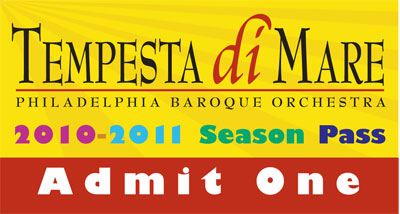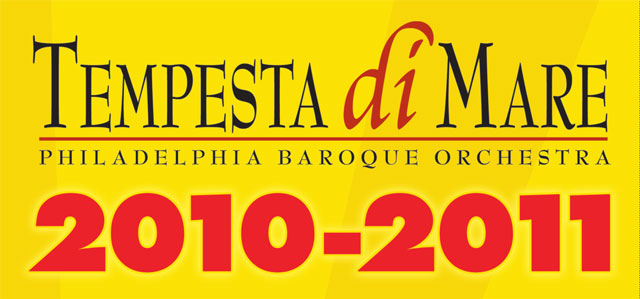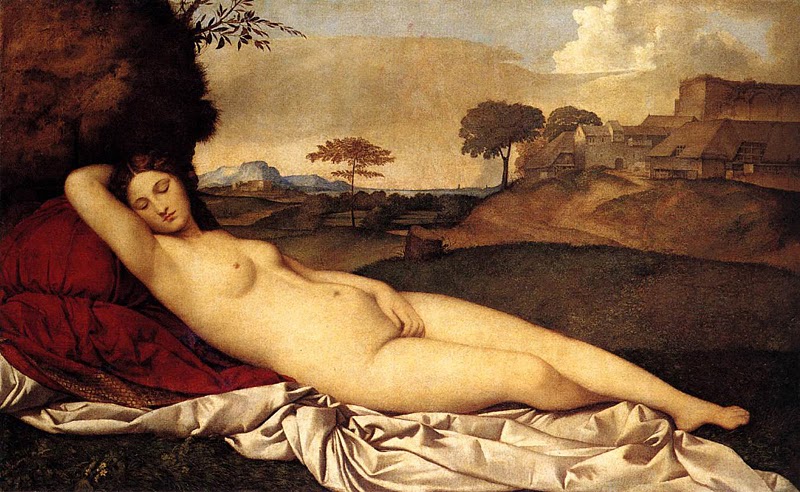Ninth Season
|
Newsletter September–October 2010 |
||||||||||||||||||||||
 FEATURE
FEATURE
Baroque Dresden No Fairy Tale by Anne Hunter Once upon a time, there was a king whose kingdom was in a war it couldn’t afford. A young man came to the king one day. “I can make gold,” he said. The king was delighted—the answer to his problems!—and gave the young man shelter. But the young man had lied. He tried and tried, but he couldn’t make gold. The king became impatient. The young man—somewhat older now—was scared and admitted that he’d failed. He couldn’t make gold. But, he said, he knew how to make something else that the king might be interested in.... It could be a fairy tale, but it’s real. The king in the story is the man behind Tempesta di Mare’s upcoming concert, The Dresden Orchestra: August the Strong, Elector of Saxony, King of Poland and Dresden’s reigning potentate from 1694 to 1733, one of those fairy-tale kings of the Age of Absolutism. Almost. August was no fantasy and despite his belief in alchemy, he was no innocent. He was a powerful player on the European stage in the Age of Absolutism and a real person who wasn’t called “the Strong”” for nothing, although he probably fathered fewer illegitimate children than the reputed 350. In the arts, though, August exuded fairy-tale magic. His orchestra was probably the best in Europe. His musicians were superstar players from all over the continent molded into a rock-hard ensemble. “[August’s orchestra] achieved a finesse of performance that I never heard surpassed in all my later travels,” wrote J.J. Quantz, famous flutist and favorite of rival royal Frederick the Great. “We love playing Dresden repertoire,” says Tempesta artistic co-director Richard Stone. “It’s so showy, written by virtuosi for virtuosi, with tons of textural contrast. The band really knows how to make a meal of it.” (FEATURE continues below) |
||||||||||||||||||||||
WHEN & WHERE
|
||||||||||||||||||||||
|
FEATURE (continued) As well as the peerless orchestra, August gave—or bought—Dresden a deep and rich art collection, a magnificent cityscape with jaw-dropping palaces, gardens, fountains, outdoor theater, and enough shows, services, tournaments, fetes and eye-popping entertainments to make him the envy of everyone from his fellow monarchs to ambitious plebes like G.F. Handel (who eagerly grabbed August’s cast-off Italian opera stars for his London ventures). He had the eyes and ears of a true connoisseur and the intellect to make the most of them. Not only did he buy the fabulous Giorgione Sleeping Venus for the royal galleries, he took stock of all the Dresden art collections—paintings, prints, drawings, treasures—brought them together and installed them for public perusal with an instinct for rationalism and coherence that makes old museum workers like myself get misty in the eyes and weak at the knees. And he did it himself. Sketches and notes to his architect in his handwriting survive. “Dresden will from now on be an Athens for artists,” wrote historian Johann Joachim Winckelmann, whose vastly influential theories on art and the classics were inspired by visits to August’s galleries.
(FEATURE continues below) |
||||||||||||||||||||||
 2010-2011 SEASON PASS
2010-2011 SEASON PASS
All five concerts
A Tempesta di Mare Season Pass is a bundle of good things rolled into one:
Get your Season Pass now for only $145! Use the order form below.
|
||||||||||||||||||||||
|
FEATURE (continued)
And why, you may ask, have you never heard of this August the Strong guy before? He isn’t up there on the Absolute Monarch Short List with Louis XIV, Frederick the Great and the Hapsburgs. Well, it helps if your fairy-tale kingdom isn’t flattened repeatedly by enemies, as Dresden was by Prussia in the 18th century and the Allies in the 20th. Efforts are now being made to bring back “The Florence on the Elbe,” but restoring bricks and mortar is slow. Music-lovers don’t have to wait, though. You can experience the full glory of The Augustan Age this October when Tempesta di Mare brings back The Dresden Orchestra. And that’s no fairy tale.
Print of Augustus II on a horse courtesy of the Print and Picture Collection, Free Library of Philadelphia, with permission. |
||||||||||||||||||||||

STOP PRESS Repertoire Change Tempesta’s principal horn—one of the few natural horn players anywhere capable of performing the demanding parts in the scheduled Fasch and Zelenka works—sustained a temporary injury that has necessitated a last-minute substitution of repertoire without horns while he recuperates. We are happy to report that he’ll soon be back in full swing and able to join us for May’s program, while the pieces with horn originally scheduled for this production will go up next season instead. Here is the revised program that we’ll play in October.
|
||||||||||||||||||||||
Tempesta di Mare • 1034 Carpenter St • Philadelphia PA 19147 • 215-755-8776 • www.tempestadimare.org


 Fairy dust didn’t extend to August’s statesmanship, though. His armies fared poorly. And as King of Poland, a crown he purchased rather than earned, August seems to have initiated that country’s long downward slide. Perhaps failures in battle and diplomacy were the secret to his success. With nobody to answer to—absolutism personified!—he played to his strengths. For him as for other rulers of the era, Louis XIV first and foremost, culture was political. And when it came to culture, he was scary good—as was his heir, Augustus III, who sustained his father’s cultural legacy through the mid-eighteenth century.
Fairy dust didn’t extend to August’s statesmanship, though. His armies fared poorly. And as King of Poland, a crown he purchased rather than earned, August seems to have initiated that country’s long downward slide. Perhaps failures in battle and diplomacy were the secret to his success. With nobody to answer to—absolutism personified!—he played to his strengths. For him as for other rulers of the era, Louis XIV first and foremost, culture was political. And when it came to culture, he was scary good—as was his heir, Augustus III, who sustained his father’s cultural legacy through the mid-eighteenth century.